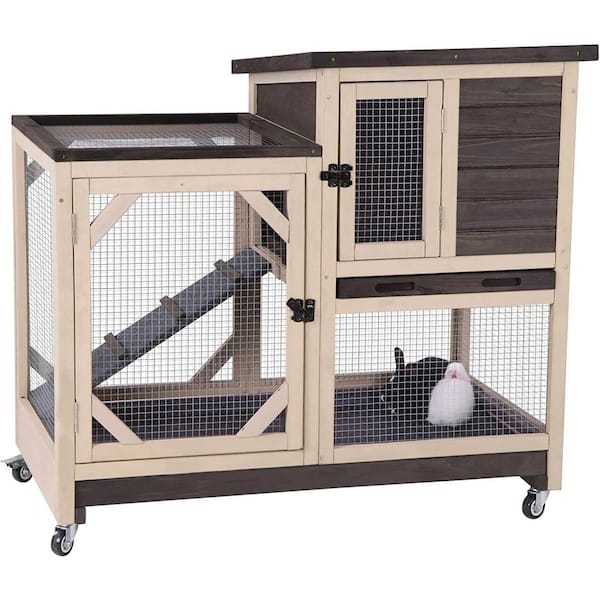Essential Care for Copper Koi Betta in 2025
Caring for a Copper Koi Betta involves understanding their unique needs and characteristics. The Copper Koi Betta, a vibrant variety of Betta fish, showcases stunning coloration and distinct patterns that make them a popular choice among aquarium enthusiasts. Known for their vivid colors and captivating behavior, these fish require specific conditions to thrive, ensuring they remain healthy and vibrant.
As pet owners, it's crucial to provide the appropriate environment, nutrition, and care to enhance the betta's life quality. Proper care not only helps maintain the health and beauty of Copper Koi Bettas but also enriches the aquarist's experience in managing an aquatic ecosystem.
This article will outline practical ways to care for Copper Koi Bettas, including tank setup, feeding, and health management. By following these guidelines, you'll create a thriving habitat for your betta fish, allowing them to display their stunning copper betta coloration and behavior.
Key takeaways include: optimal tank setup, feeding techniques, maintaining water parameters, and signs to watch for regarding the health of your betta. Let's dive in!
Choosing the Right Betta Fish Habitat
Creating the ideal habitat for your Copper Koi Betta is fundamental for its health and happiness. A suitable aquarium setup allows your betta fish to express its natural behaviors while maximizing its stunning appearance.
Optimal Tank Size for Bettas
The size of the aquarium plays a significant role in maintaining a healthy environment for Copper Koi Bettas. As a rule of thumb, a minimum tank size of 5 gallons is recommended for a single betta fish. This size allows for sufficient swimming space, important for the betta's health and well-being.
A larger tank size can help stabilize the water parameters, minimizing fluctuations that can stress your fish. Additionally, a bigger tank can host a variety of aquarium plants and decorations, enhancing the aesthetics and providing hiding spots for your betta.
Essential Tank Equipment
Setting up the perfect environment for your Copper Koi Betta requires essential equipment. Invest in a high-quality filtration system to keep the water clean and free from harmful toxins. A proper filtration system not only removes waste but also ensures continuous aeration, which is vital for betta fish health.
In addition to filtration, incorporating a heater is crucial for maintaining optimal water temperatures. Bettas thrive in warmer conditions, with ideal temperatures ranging from 76°F to 82°F. Using an adjustable heater helps stabilize temperature fluctuations, which can adversely affect your fish's health.
Aquascaping for Betta Tanks
Aquascaping is an artful way to create an inviting habitat for your Copper Koi Betta. Using aquarium plants can enhance your betta's environment and offer plenty of hiding spots to alleviate stress. On the other hand, aquascaping adds visual appeal and helps replicate a natural aquatic environment.
Some excellent options for plants that suit bettas include Java fern, Anubias, and floating plants. These not only provide shelter but also contribute to oxygenation and filtration in the water. Be cautious when selecting decorations as sharp edges can harm the delicate fins of bettas, particularly with their long and flowing fins.

Understanding Copper Koi Betta Nutrition
Feeding your Copper Koi Betta the right diet is crucial for its health, growth, and color enhancement. Providing a balanced diet contributes to vibrant coloration and overall vitality, ensuring your betta thrives in its habitat.
Optimal Feeding Techniques
To achieve success in feeding your betta fish, it’s essential to understand their nutritional needs. Bettas are carnivorous and thrive on a diet rich in high-quality protein. Utilizing a variety of betta fish food can ensure they receive a balanced diet. Good options include high-quality betta pellets, freeze-dried foods, and live or frozen food like brine shrimp or daphnia.
Following a structured feeding schedule is equally important. Aim to feed your betta 2-3 times a day, offering only what they can consume in a few minutes. Overfeeding can lead to health issues such as obesity and water quality problems.
Signs of Healthy Betta Fish
Recognizing the signs of a healthy Copper Koi Betta is essential for effective care. A healthy betta will display vibrant colors and have firm, unfrayed fins, free from signs of damage. Observing your betta's behavior can also provide insights into its health; active swimming and curiosity towards the surrounding environment are good indicators.
Conversely, watch for signs of stress that may include hiding, refusal to eat, or lethargic movements. Regular observation guarantees you catch potential health issues early and react accordingly, ensuring a long lifespan for your fish.

Maintaining Optimal Water Conditions
Water quality is a critical factor in keeping your Copper Koi Betta healthy. Bettas are sensitive to their environment, and maintaining optimal water conditions plays a significant role in their behavior and overall well-being.
The Importance of Water Parameters
Regularly monitoring the water parameters in your betta fish tank is vital for their health. Key factors to observe include pH, ammonia, nitrite, and nitrate levels. The ideal pH range for bettas is between 6.5 and 7.5. Conduct regular water tests to ensure these levels remain stable and within the desired range.
Ammonia and nitrite levels should ideally be at 0 ppm, while nitrate levels should be kept below 40 ppm. If any levels are too high, regular water changes are essential to lower the concentration and create a healthier environment for your betta.
Water Changes and Maintenance
To maintain optimal water conditions, perform regular water changes. A 20-30% weekly water change can significantly improve water quality and reduce harmful toxins. Always ensure you're using a water conditioner to remove chlorine and chloramine from tap water before adding it to the tank.
Furthermore, consider adding a water testing kit to your care routine. By regularly assessing the water quality, you can catch any toxic spikes before they affect your betta's health. A proactive approach ensures your Copper Koi Betta can thrive in a clean and safe environment.
Common Diseases in Betta Fish
Understanding common diseases affecting Bettas is critical for effective maintenance. Early detection and intervention can save your fish from severe health issues.
Signs of Betta Fish Diseases
Recognizing the signs of illness is essential in protecting your Copper Koi Betta. Some common warning signs include discoloration, frayed fins, lethargy, and refusal to eat. Ich, fin rot, and velvet disease are prevalent illnesses that can affect bettas if not promptly addressed.
Regularly scrutinize your betta for any unusual traits or behavioral changes. If you spot any concerning signs, consider setting up a quarantine tank to isolate the affected fish and prevent the spread of disease to other inhabitants in your aquarium.
Preventive Measures for Betta Fish Health
Preventive care plays a significant role in keeping bettas healthy. To reduce disease risks, ensure proper tank conditions, maintain a clean environment, and implement a varied diet. Quarantine new arrivals for at least two weeks before introducing them into an established tank, as this helps prevent the transmission of illnesses.
Additionally, monitor interactions if you have tank mates. Betta fish can exhibit aggressive behavior towards other fish, so ensuring compatibility is key to a peaceful community tank setup.
Q&A: Caring for Copper Koi Betta
What is the ideal tank size for a Copper Koi Betta?
The ideal size for a Copper Koi Betta is a minimum of 5 gallons. This offers ample swimming space and contributes to stable water parameters.
How often should I feed my betta fish?
Feed your betta fish 2-3 times a day with a variety of high-quality betta food, only providing what they can consume in a few minutes.
What are common signs of stress in bettas?
Signs of stress in bettas may include hiding, lack of appetite, and lethargic movements. Regular observation is crucial for spotting these behaviors.
How can I ensure the health of my betta fish?
Regular water changes, monitoring water parameters, a balanced diet, and preventing overcrowding in the tank are essential factors in ensuring your betta's health.
Can Copper Koi Bettas be kept with other fish?
While they can coexist with some tank mates, understanding betta fish temperament is essential. Avoid aggressive species and ensure compatibility with gentler, peaceful fish.
